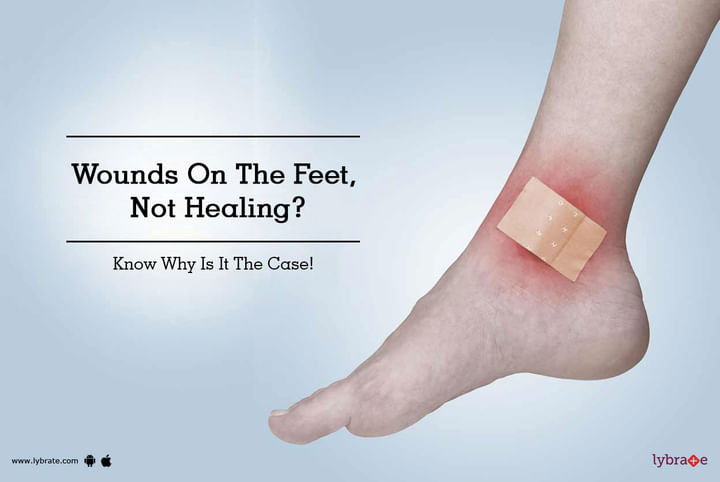Wounds On The Feet, Not Healing? Know Why Is It The Case!
An injury runs its course of a few days to weeks depending on the size and heals and closes. There could be scarring or mobility issues in some though. However, this does not happen in all cases, and a wound that has not healed for more than 6 weeks is termed as chronic. They are most common in the hands and feet. In those who have mobility issues, hips, buttocks, and thighs are also common areas.
Read on to know more about why this happens and how they can be treated.
Reasons: Though there could health conditions aggravating the healing, most wounds heal late due to 3 reasons:
- Poor circulation: A healing wound requires nutrition for the cells to repair, and if there is improper circulation, then healing is definitely delayed. This can happen due to diabetes, malnutrition, reduced mobility, vascular disease, etc. In many unsuspecting people, nonhealing wounds have led to diabetes being diagnosed. Diabetes also affects nerve supply, so delayed healing may go unnoticed too. Post injury, it is also important to completely stop movement, as circulation needs to be maintained for proper, quick healing.
- Infection: By preventing tissue regeneration and interfering with blood clotting, they can prolong bleeding and cause chronic inflammation. This leads to delayed healing and in most cases, worsening of the current situation.
- Fluid accumulation/edema: Any injury causes leakage of cellular fluid into the surrounding tissues. This causes edema and the surrounding tissue is often swollen. This leads to poor circulation also, which is another cause for delayed healing. Edema also reduces tissue repair difficult, not allowing skin to form over the wound.
Symptoms: While the wound per se is an indication, there are also other symptoms which indicate a non-healing wound.
- Pain, which has not subsided
- Swelling, discharge, odor, and skin color changes due to the ongoing infection. A thin discharge is not worrisome, but a thicker or foul-smelling discharge is definitely a cause for concern
- Open wound: Most wounds heal within the 30-day period. If the wound is open beyond that, it is always advisable to seek medical support.
Management: This would include generic and local treatment.
Generic treatment would include a nutritious diet, good sleep and rest, adequate exercise and rehab program to ensure adequate mobility, and frequent monitoring. In addition, conditions like diabetes have to be monitored and brought under control.
Local treatment options would be:
- Wound debridement and skin or tissue grafting
- Medications to improve wound healing
- Hyperbaric oxygen to provide more oxygen to the wound in particular
- Vascular repair to improve circulation.
Delayed healing of wounds should not be ignored; timely medical help can avoid complications.
In case you have a concern or query you can always consult an expert & get answers to your questions!



+1.svg)
